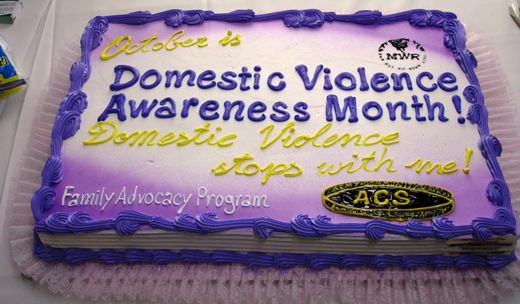
Domestic violence affects two million women in the United States each year. It affects women from all social, racial, ethnic, and economic backgrounds. Domestic violence is the cause of more than one-third of emergency room visits by women and accounts for 22% of all violent crimes against women.
Abused women are subjected to intentional, often repeated physical, sexual, or emotional harm from a current or former intimate partner. They may be slapped, hit, kicked, beaten, or threatened or attacked with weapons.
Sexual violence, such as rape and other sexual assault, may occur and their partners may sabotage the use of birth control or refuse to follow safer sex practices.
Women may also be psychologically or emotionally abused through name calling; humiliation; social isolation from family, friends, and work; and deprivation of food, money, transportation, medications, and access to health care.
Many times, the abuse escalates during pregnancy.
Domestic violence can cause a number of physical ailments in women, such as chronic and unexplained pelvic pain, sexual dysfunction, breast and genital trauma due to sexual assaults, and STDs from partner infidelity.
The stress of living in an abusive relationship can trigger post-traumatic stress disorder or battered woman syndrome, which can lead to depression, anxiety disorders, substance abuse, physical problems, and suicide. Abused pregnant women have a higher risk of miscarriage, vaginal bleeding, fetal injury, and delivering a low birth weight infant.
Roughly half of children who live in violent households are abused, and children who witness abuse are much more likely to become abusers or be abused themselves in adulthood. In many cases, the violence against women and children becomes more frequent and severe over time.
If you are being abused, tell someone you trust-your doctor, a counselor, close friend, or family member.
He or she can assist you in escaping a dangerous situation.
Make a plan that can be used to get yourself and any children to safety quickly. Pack a suitcase with a change of clothes and an extra set of keys and store it with a friend or neighbor. Keep prescription medications, identification, extra cash, your checkbook, and other special items handy so you can take them with you on short notice.
If you are in immediate danger, call 911. If you are hurt, call your doctor or go to the emergency room and get a police report and a copy of your medical record so you can file charges if you wish.
For help and information any time, call the National Domestic Violence Hotline (800-799-SAFE/7233) or the National Teen Dating Abuse Helpline (866-331-9474).
Richard N. Waldman, MD, is president of The American Congress of Obstetricians and Gynecologists. ♀
Photo: (Dawn Powell, Heidelberg ACS)

MOST POPULAR TODAY


Zionist organizations leading campaign to stop ceasefire resolutions in D.C. area

High Court essentially bans demonstrations, freedom of assembly in Deep South

Afghanistan’s socialist years: The promising future killed off by U.S. imperialism

Communist Karol Cariola elected president of Chile’s legislature






Comments